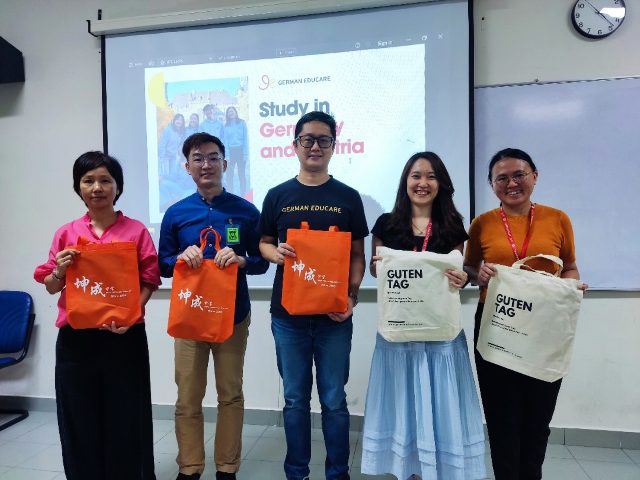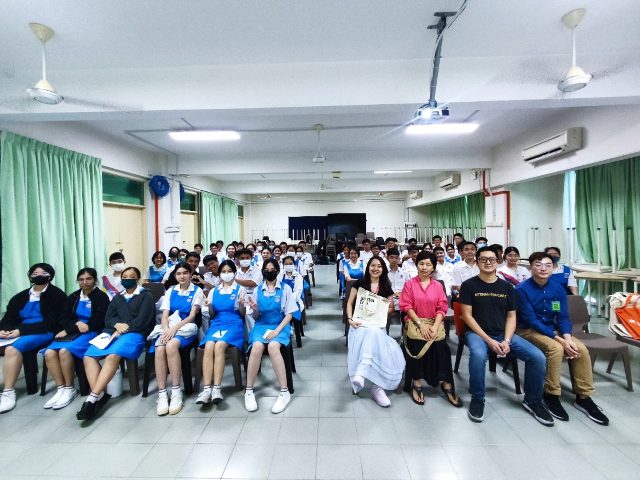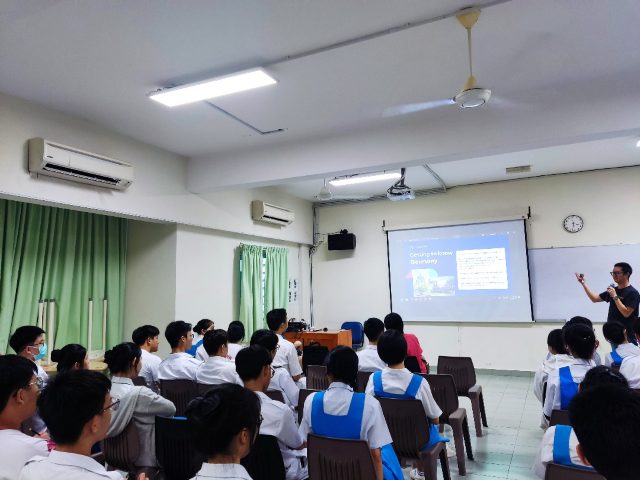Reported by:
Sr3ComB Ho Chia Chien
Photography by:
Counseling Department
On 28th April 2025, Kuen Cheng High School held an after-school sharing session on studying in Germany and Austria. The event took place from 3:15 p.m. to 4:45 p.m. at the MML 2 activity room. Before the session began, the counseling teachers presented commemorative gift bags to the speakers, and a group photo was taken to mark the occasion.

(Photo 1: Gift presentation to guest speakers)

(Photo 2: Group photo)
The session officially began with a brief introduction by the counseling teacher, who introduced German Educare and welcomed the guest speakers, Mr. Victor and Mr. Koh, the founders of the organization. The discussion initially focused on studying in Germany, but later expanded to include Austria as well.
Mr. Victor opened the session by explaining why many students are choosing Germany, the main reason being the availability of tuition-free public universities. Students are only required to pay a registration fee, which is approximately €360 (around RM1,729) per year. Studying in Germany or Austria is also attractive due to the exposure to different cultures, high-quality education, opportunities to develop independence, job prospects, and the chance to travel.

